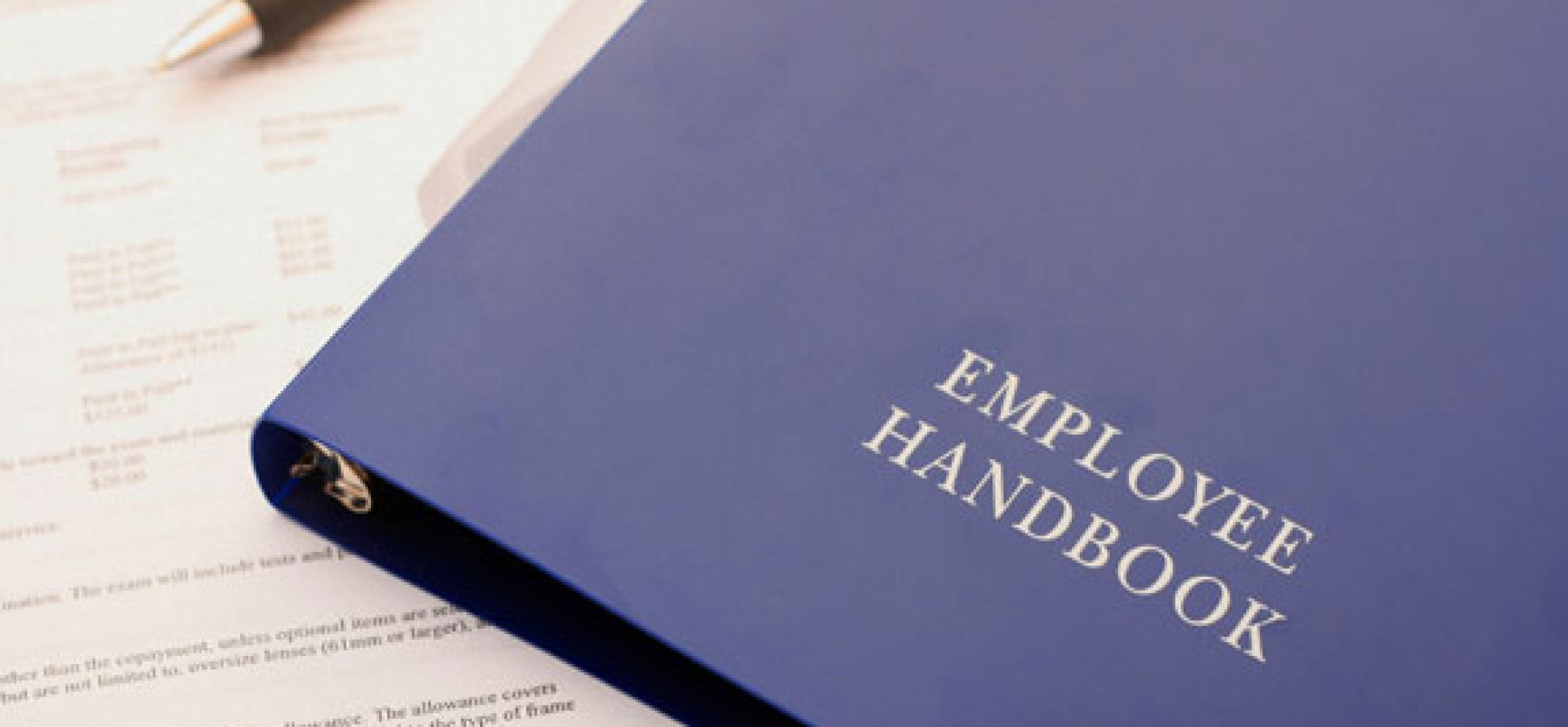Under the administration of President Donald J. Trump, employers may be able to anticipate many changes in the regulatory and legal environment. In particular, the National Labor Relations Board (NLRB), which had been very pro-union under Barack Obama, may shift its focus.
Just one example includes how federal regulators in recent years have increasingly scrutinized many parts of employee handbooks and found that they could be illegal under the National Labor Relations Act (NLRA). Consider a recent case involving T-Mobile USA, which had handbook provisions designed to maintain a professional work environment. According to one of the company’s rules, “Employees are expected to maintain a positive work environment by communicating in a manner that is conducive to effective working relationships with internal and external customers, clients, co-workers, and management.”
In a ruling in April 2016, the NLRB struck down that provision, among others. In T-Mobile USA, Inc. and Communications Workers of America and Communications Workers of America Local 7011, AFL–CIO, the NLRB upheld a ruling by Administrative Law Judge (ALJ) Christine E. Dibble that found that rule, and several others, to be illegal. But the NLRB went even further than Dibble did, and ruled that other handbook provisions were too broad.
The ruling in T-Mobile has represented part of a trend, where the NLRB has found that many rules could limit union activity—even when employers never intended them to have anything to do with unions or to restrict workers’ rights. While that may change, any change could take some time. In the meanwhile, employers need to understand whether their handbook provisions, which are designed to minimize risk, could actually get them in more trouble.
Section 7 Rights
Congress enacted the NLRA in 1935 to “protect the rights of employees and employers, to encourage collective bargaining, and to curtail certain private sector labor and management practices, which can harm the general welfare of workers, businesses and the U.S. economy.” Specifically, under Section 7 of the NLRA, concerted activity such as the ability to discuss wages and working conditions is protected.
Under Section 7, employees are guaranteed “the right to self-organization, to form, join, or assist labor organizations, to bargain collectively through representatives of their own choosing, and to engage in other concerted activities for the purpose of collective bargaining or other mutual aid or protection,” as well as the right “to refrain from any or all such activities.” Section 8(a)(1) of the NLRA makes it an unfair labor practice for an employer “to interfere with, restrain, or coerce employees in the exercise of the rights guaranteed in Section 7.”
In the T-Mobile decision, the board found that employees would “reasonably construe the rule to restrict potentially controversial or contentious communications and discussions, including those protected by Section 7 of the [NLRA], out of fear that the [employer] would deem them to be inconsistent with a ‘positive work environment.’”
Recent Cases
The NLRB has been weighing in on handbook provisions in a variety of ways. In 2015, the NLRB general counsel issued the “Report of the General Counsel Concerning Employment Rules.” The report targeted changing issues, new social media and the NLRB’s interpretation of protected activities, including a focus on handbook policies.
Along with the T-Mobile ruling, in April 2016 U.S. Administrative Law Judge David I. Goldman struck down several handbook provisions of Quicken Loans Inc., Fathead LLC and four other companies. Goldman found that many rules in the so-called “Big Book” were so broad that they could reasonably be interpreted as interfering with NLRA rights. Some of the troublesome rules read: “If it doesn’t belong on the front page of The New York Times, don’t put it online” and “Something wrong at QL? Don’t take it online. Resolve work-related concerns by speaking directly with your team leader or team relations specialist.”
According to the ruling, “The elephant in the middle of the room, so to speak, is not some idle comment by a supervisor or memo once distributed by a rogue midlevel supervisor. The issues emanate from an employee manual compiled, created and distributed by the respondents. It purports to be an official manual of rules that employees are to follow.”
Following the judge’s decision, the companies sent an email to employees that rescinded several versions of the “Big Book,” according to the decision.
The NLRB has also begun to look carefully at confidentiality agreements in handbooks, finding that some may infringe on Section 7. In a June 2016 ruling, the NRLB found that Schwan’s Home Service, Inc.’s handbook provisions violated Section 7 by banning employees from using “confidential information” that benefitted employees or third parties, or would be detrimental to the company. Confidential information included salaries, commissions, performance or the identity of employees. The NLRB found that employees would reasonably interpret the agreement to stop them from discussing terms and conditions of employment.
What Employers Need to Do Next
Under Pres. Trump, the pendulum may swing back to being more business-friendly. However, any shift is likely to come slowly and incrementally.
One consideration is the makeup of the board of the NLRB. At full strength, the NLRB has five members who serve five-year terms, with one member’s term expiring every year. The president appoints board members, who are confirmed by the U.S. Senate. However, Obama’s choices of NLRB appointments have been controversial, to say the least. In 2014, the U.S. Supreme Court, in a unanimous ruling in Noel Canning v. NLRB, found that Obama’s January 2012 recess appointments of three NLRB members were unconstitutional.
Currently there are only three members on the board—Democrats Mark G. Pearce and Lauren McFerran and Republican Philip A. Miscimarra. That means Pres. Trump will have the opportunity to appoint two members.
Until the political and regulatory situation becomes clearer, employers should assume that the NLRB will continue its current enforcement emphasis. There are several steps employers should take:
- Thoroughly Review Current Policies
Companies should take a close look at their current handbook rules, with an eye toward whether they could possibly infringe on Section 7 rights. Provisions may not have anything to do with union activity. In fact, companies may not even be unionized. But even non-union employers must abide by the NLRA.
Experienced HR staff and knowledgeable legal counsel should be a critical part of the team that reviews the handbook and suggests any changes. Legal advice will be particularly important as companies try to develop policies that protect employees from harassment, while not violating the NLRA.
- Be Specific
Language that is too vague or broad can get companies in trouble. As T-Mobile found out, even words about creating a “positive” work environment may not pass muster. While employers may only want to create a professional workplace, the federal government may decide rules could translate into bans on protected activity.
When it comes to confidentiality agreements, handbook rules should stress that it’s acceptable to discuss wages and other working conditions with fellow employees. If an employee claims to be discussing confidential information as a whistleblower, companies need to proceed particularly carefully. Some government regulations, such as the Sarbanes-Oxley Act requires employees to report illegal activity. HR and legal counsel should become involved immediately if there is a possibility that whistleblower allegations could be raised.
With Donald Trump in the White House and the Republicans in control of Congress, the NLRB may take a more business-friendly approach in the future. But in the meantime, employers need to continue to make sure that nothing in their handbooks could possibly be interpreted as violating Section 7 rights and possibly be viewed as anti-union.
————
Richard D. Alaniz is a senior partner at Alaniz Schraeder Linker Farris Mayes, L.L.P., a national labor and employment firm based in Houston. He has been at the forefront of labor and employment law for over thirty years, including stints with the U.S. Department of Labor and the National Labor Relations Board. Rick is a prolific writer on labor and employment law and conducts frequent seminars to client companies and trade associations across the country. Questions about this article, or requests to subscribe to receive Rick’s monthly articles, can be addressed to Rick at (281) 833-2200 or ralaniz@alaniz-schraeder.com.
Thanks for reading CPA Practice Advisor!
Subscribe Already registered? Log In
Need more information? Read the FAQs





